Come summertime, many South Forkers face the challenge of getting past a velvet rope to enjoy cocktails at one of the Hamptons’ various hotspots. Meanwhile, on the North Fork, people will be clamoring to get into a club serving a very different kind of libation: raw milk.
It may not be as inebriating as an icy Manhattan or a sparkling prosecco, but for the true believers who adore the fresh milk produced in limited quantities by Chris Wines’ Jersey cows at Ty LLywd Farm — pronounced “Ty Cle-wed,” because it’s Welsh — this drink is equally worth obsessing over.
A Small Gem in a Busy World
One recent customer drove all the way from Stony Brook, as she’s been doing for the last five years. “I pass a Whole Foods every time to come here, but I can’t say enough good words about this place,” Julia explains. “The raw milk tastes amazing, and this farm is like a small gem in our very busy world.”
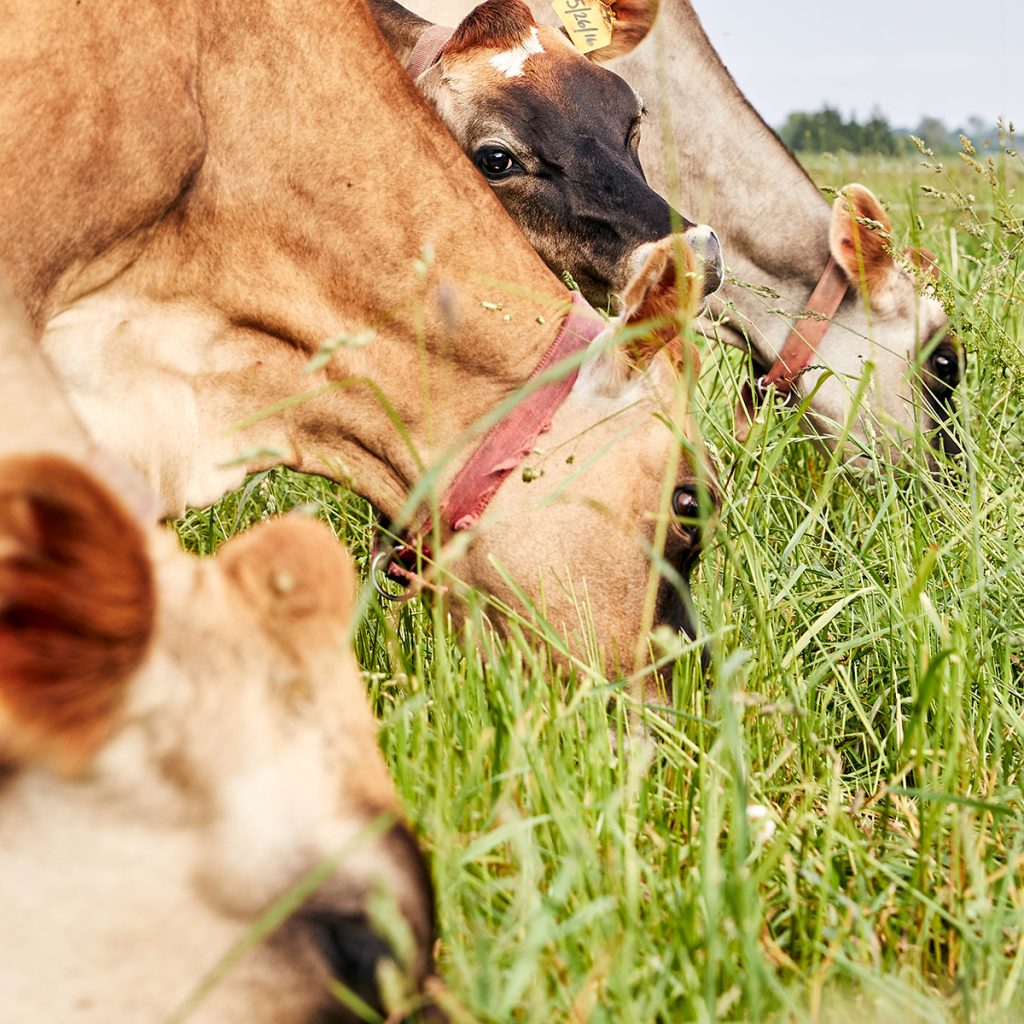
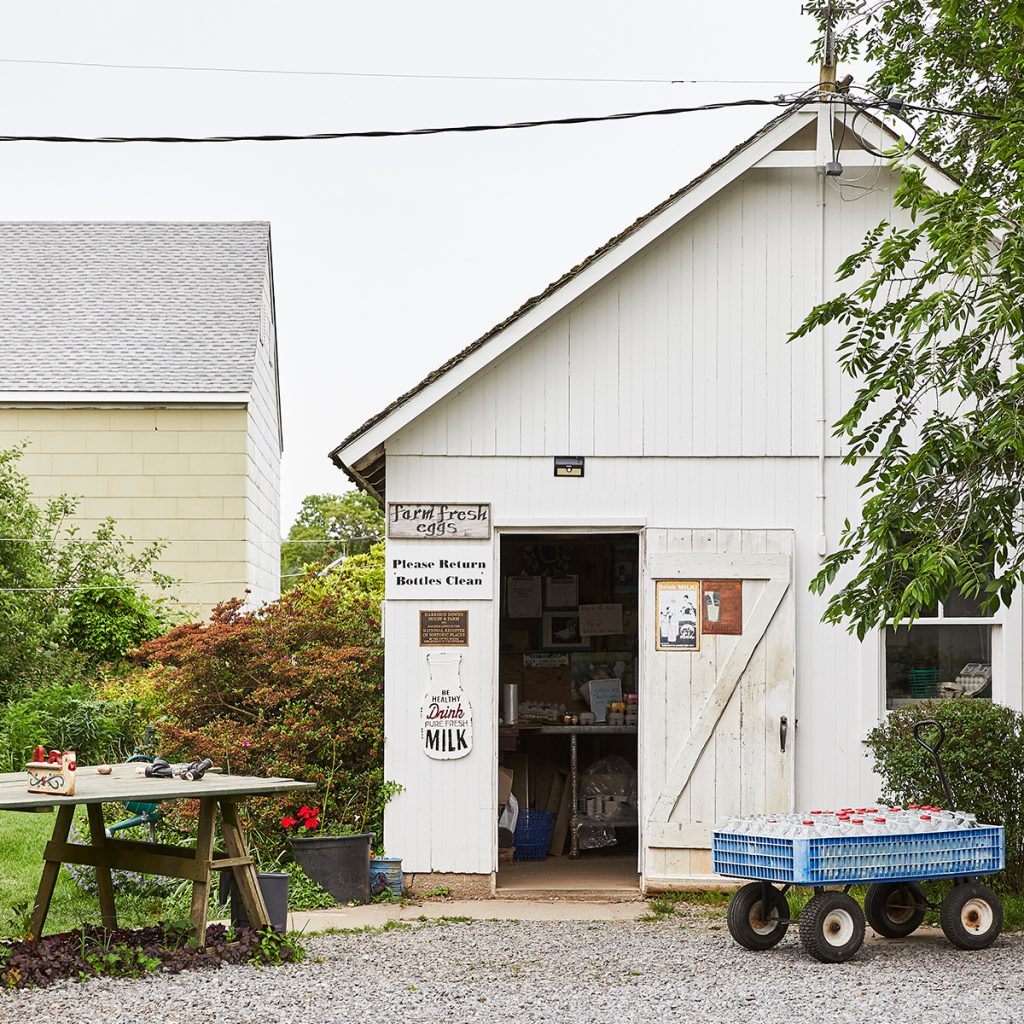
Ty Llywd has been a family farm since 1872 — a 33-acre tract on Sound Avenue in Riverhead that historically produced potatoes and now sells fresh vegetables, chickens, and eggs. David and Liz Wines run it, but in 2010 their son Chris added dairy cows to the mix.
Chris Wines is the epitome of a reticent farmer, saying little and avoiding photographs. When asked why he decided to become a raw milk producer, the man just shrugs.
“I had to do something,” he laughs.
Why Raw Milk Is Tasty, Not Scary
For the uninitiated, “raw milk” comes straight from the cow, and is sold without undergoing pasteurization (when milk is heated to kill off any potentially harmful bacteria). And while humanity long survived drinking raw milk, today the idea of enjoying a glass unpasteurized can be foreboding — even the CDC’s website strikes an alarmist tone, alerting readers that drinking raw milk “can make you very sick or kill you.”
Chris Wines doesn’t buy it. “Weren’t they the bunch that was once telling us to eat a lot of trans fats?” he laughs. “Like, have a lot of margarine?”
But Wines concedes raw milk isn’t a perfect food, because he says there is no perfect food. “The analogy I use is healthy versus safe,” he says. “If you eat a box of store-bought cookies, that isn’t healthy, but it’s probably not gonna make you sick. Meanwhile, if you eat something good like fresh spinach, there’s always the possibility of E. coli.”
The State of New York agrees, being one of more than 40 states that allows the sale of raw milk. It maintains stringent policies for such sales, though, granting special permits only to farms that first pass initial and then monthly inspections.
Chris Wines milks the cows at Ty Llwyd Farm twice daily. (He wasn’t thrilled about having his portrait taken, but his father, David, seen elsewhere here, didn’t mind.) All photos by Nico Schinco.
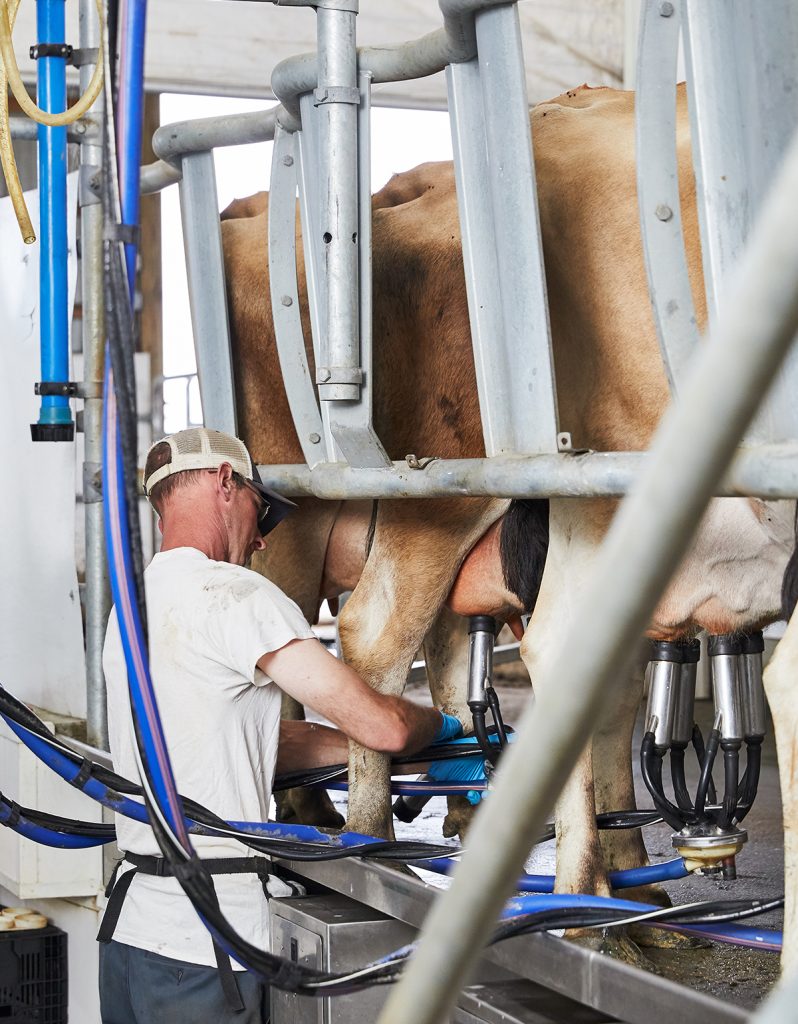
The facilities at Ty Llywd, for example, are checked each month for cleanliness, while samples of the milk itself are tested for pathogens including E. coli, listeria, salmonella and campylobacter. Plus, the raw milk produced at New York farms like Ty Llywd must be sold on the premises within 24 hours of being bottled; otherwise it is destroyed.
But if there’s some risk involved in drinking raw milk, there are also benefits, as the process of pasteurization is known to kill not only possible pathogens but also various enzymes, antibodies and hormones that aid human health and digestion. Vitamins B6 and B12, for example, are completely lost to the pasteurization process, while vitamins A, C, D and E are greatly reduced.
Drinking raw milk, conversely, is believed to offer its consumers more of those vitamins plus omega-3 fatty acids (like those found in wild salmon), healthy enzymes, and other vitamins and minerals. There’s even some thought that drinking raw milk from grass-fed cows on local farms can aid in reducing allergies and asthma.
A Precious Liquid, Even for Adults
Along with those health benefits, fans of raw milk love its thick, creamy taste. Many people who could never stomach the store-bought variety are able to enjoy milk in its natural state. After a lifetime of being allergic to pasteurized milk, for example, a regular customer named Nanette religiously travels from Easthampton to Ty Llywd once a week to get her fix.
“I could never drink milk,” she says, “and it even made me lose my hair as a child. But after sixty years I finally can. This milk is delicious and helps me sleep at night.”
Initially Chris Wines had only one cow at Ty Llywd, but today he’s up to nearly two dozen, including 14 currently being milked (the others are either too young, not yet bred, or “dry” as part of the gestation process of having calves). The cows are milked twice daily, at 7 a.m. and 5 p.m., with the herd currently producing 40 to 50 gallons of milk a day.
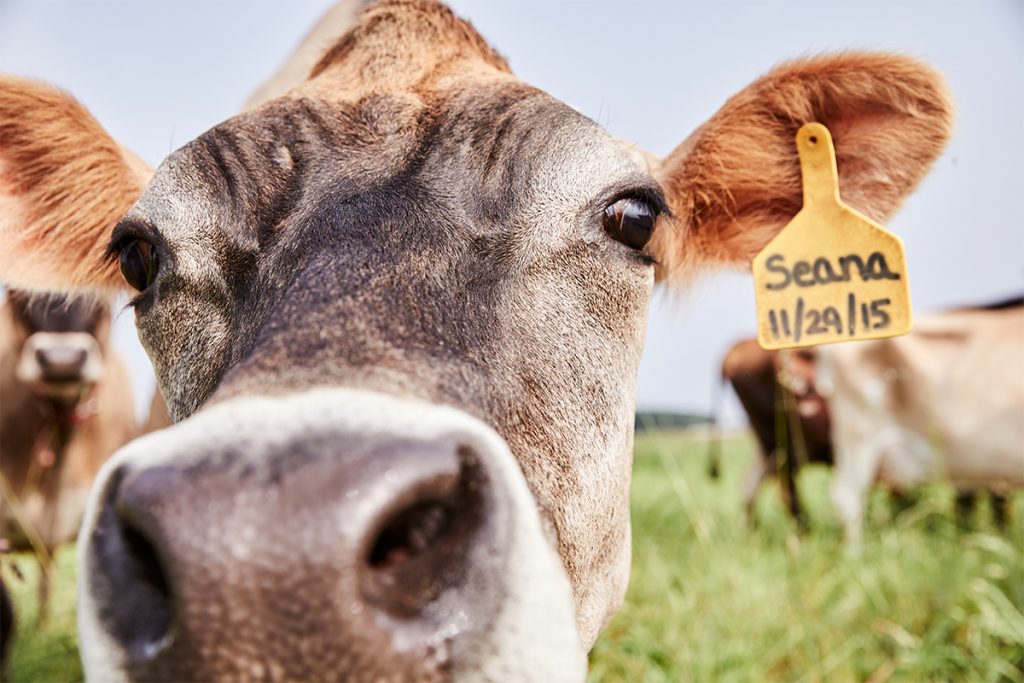
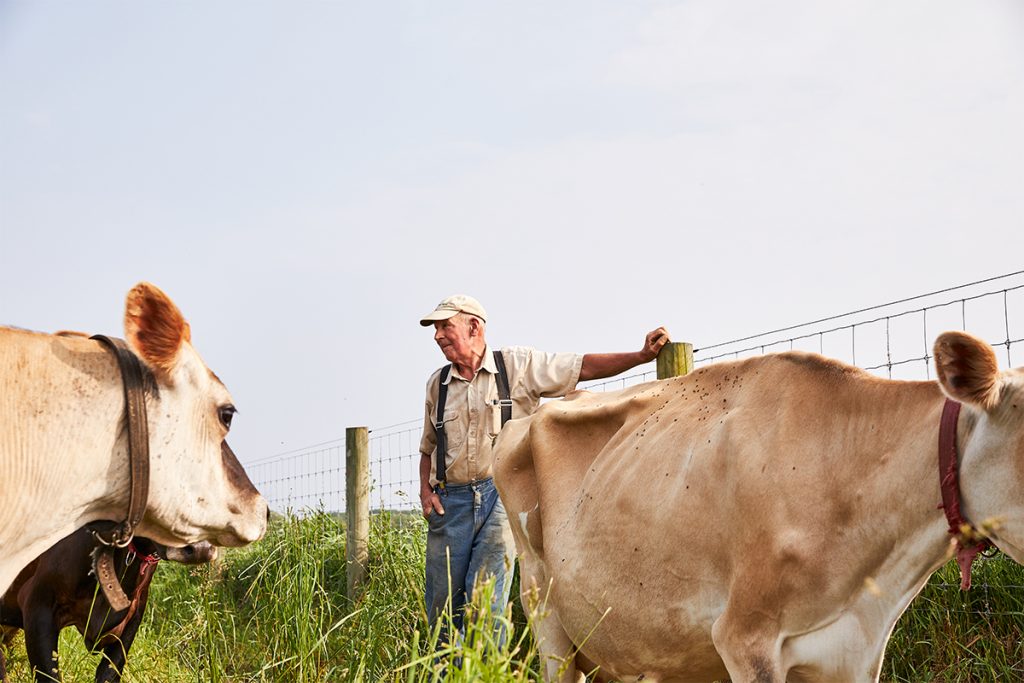
If fed grains, those Jersey cows could more than double that output. But Wines limits their diet to grass — dried hay grown onsite at Ty Llywd — because a cow’s natural diet is not grain.
“Feeding them grass is the key to healthy cows and good milk,” Wines explains.
Careful Farming, Small Yields
After the cows are milked, the milk is bottled in glass and sold for $6.50 per half-gallon. When your intrepid reporter did that math, he couldn’t help but ask the laconic farmer how he managed to “make a living” working with such small numbers.
“You don’t,” Wines laughs, unflappable as ever. “What you do is live with your parents, spend no money, and have one hobby, that being farming.”
Along with not enriching Wines, the other problem with such small-batch farming is that Ty Llywd sometimes runs out of milk: Those 14 grass-fed Jersey cows, even being milked twice a day, don’t always produce enough product to quench the thirsts of all Wines’ eager customers, especially come summertime.
So during the hottest months, the only way to ensure one will get their allotted bottles is to be put on “the list” at Ty Llywd. Think of it as the North Fork version of getting past the velvet rope.
—
Inspired to find your next home on the East End? Search Out East for rental and sale properties in the Hamptons and North Fork.
